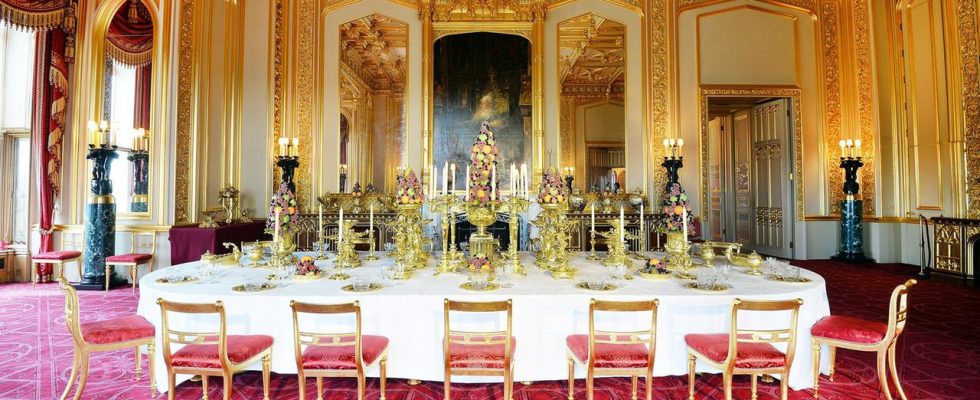analysis
British taxpayers pay their royal family about twice as much as Germans pay for their federal president – at least. Royal supporters anticipate income, for example in tourism. The balance? Inscrutable.
There’s a simple calculation of how much the British monarchy costs and a complicated one. The simple way goes like this: In 2022, the taxpayer paid the palace 86 million pounds (ie 98 million euros) for the employees of the royal family, the monarch’s trips and other costs. Calculated for all Britons, this comes to 1.40 euros – as much as a pint of milk.
For years, this was the formulation with which the press office of the palace wanted to illustrate the costs: it doesn’t sound like much, the United Kingdom will probably be able to afford it. For comparison: In the federal budget for 2023, almost 45 million euros are planned for the Federal President and the Office of the Federal President.
Profits from the lease of land
The more complicated calculation looks a little different. Because King Charles III. has income other than direct government grants. He has income from the Duchy of Lancaster. These are profits from leasing land and other property. The duchy brings in around £20 million a year. The royal family also owns the Duchy of Cornwall, and here, too, profits of a similar amount are paid out to Prince William. A special feature for the king: He does not have to pay any taxes, i.e. neither income tax nor capital gains tax or even inheritance tax. However, since 1993 the Queen has been paying taxes on a voluntary basis.
The “Republic” organization, which advocates an end to the monarchy and an elected head of state, presents a completely different calculation. In 2017, the advocacy group produced a report in which the authors concluded that royalty costs taxpayers £345m (€393m) a year. The calculation also includes the costs of securing the royals and the properties. In addition, the expenses that have to be spent on buildings that are owned by the state but used by the royal family are also included.
Thousands of official appointments a year
There are different arguments to justify the expenses for the king. The eleven “working royals”, i.e. family members working for the royal family, held around 3,200 official appointments per year before the corona pandemic. This includes, above all, appearances at charitable organizations (patrons), aid projects and associations that support social cohesion. The king is also the head of state in a total of 15 countries, chairman of the Commonwealth (confederation of states with 56 members) and the head of the Anglican Church.
Supporters of the monarchy also argue that the royal family is an economic factor and stimulates tourism. Accordingly, so many visitors come to London or Great Britain because there is the king, the glamor world around the royal family is an important attraction. This effect is difficult to calculate, however, and opponents say that the UK has enough other attractions and that the British identity that is so popular is not defined solely by a monarch.
Estimated fortune of two billion euros
There has been wide coverage of the king’s fortune in recent weeks. The daily newspaper “The Guardian” has calculated with a reporter team and wealth specialists, how much Charles III. owns. Accordingly, the king has 1.8 billion pounds (2.05 billion euros). He owns a fleet of 23 cars, numerous works of art, very valuable jewellery, horses and company shares. The family owns Balmoral Castle in Scotland, as well as the seat of Sandringham and the Duchy of Lancaster. There are no official figures. The palace did not comment on the estimates, but called the figures “a creative mix of speculation, assumptions and inaccuracy”.
What is striking in the debate about the king’s finances and the costs of the monarchy is that there is a lack of transparency. That would be good for an honest debate.

